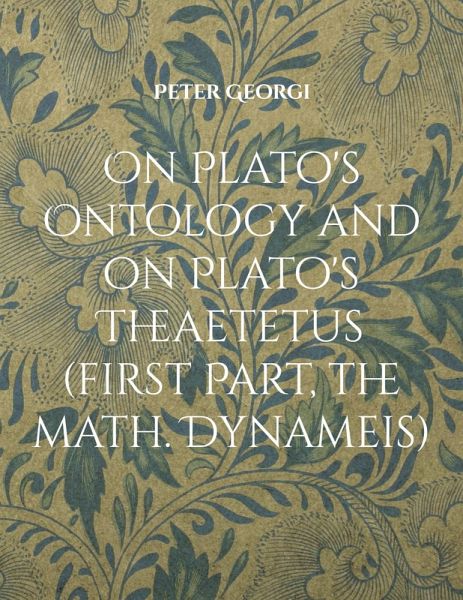Nicht lieferbar

On Plato's Ontology and on Plato's Theaetetus (first Part, the math. Dynameis)
The Ontology part of the book is shown first in the title because of its more general, weightier meaning; but it has emerged from the Theaetetus part and is thus found after it. Both parts of the book can be read largely independently of each other. On the Theaetetus part: The dialogue Theaetetus is dedicated to the question: Knowledge - what is it actually? In the dialogue, it is problematized how the concept of something at all, so also that of knowledge, can be determined. The 'famous' dynamis passage plays an essential role in this. A reasoned new view of the passage is shown. In addition,...
The Ontology part of the book is shown first in the title because of its more general, weightier meaning; but it has emerged from the Theaetetus part and is thus found after it. Both parts of the book can be read largely independently of each other. On the Theaetetus part: The dialogue Theaetetus is dedicated to the question: Knowledge - what is it actually? In the dialogue, it is problematized how the concept of something at all, so also that of knowledge, can be determined. The 'famous' dynamis passage plays an essential role in this. A reasoned new view of the passage is shown. In addition, there is a new perspective on the attempts in the initial dialogue part to determine what knowledge is. On the Ontology part: Here, starting from the dialogue Phaedo, a model of Plato's ontology is developed with provided means of mathematical logic. The model, in particular his version of concept, enables (to the author's knowledge) a partially new understanding of Plato's so-called theory of ideas.





